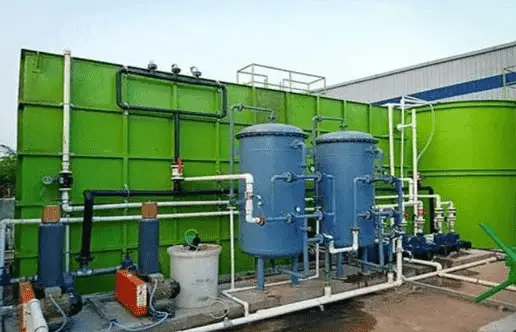In the ancient city of Mathura, known for its rich cultural heritage and spiritual significance, modern advancements are making waves. One of the key developments in recent years is the emergence of state-of-the-art sewage treatment plants (STPs), playing a crucial role in maintaining the city's sanitation and environmental health. Among the leading players in this sector is a prominent sewage treatment plant manufacturer that has been instrumental in transforming waste management practices in Mathura.
Addressing the Challenge of Waste Management
Mathura, with its growing population and influx of tourists, faces significant challenges in managing sewage and maintaining clean water bodies, including the sacred Yamuna River. Traditional sewage systems are often inadequate to cope with the increasing waste, leading to pollution and health hazards. This is where advanced STPs come into play, offering efficient solutions to treat sewage and mitigate environmental impacts.
The Pioneer in Sewage Treatment Solutions
The sewage treatment plant manufacturer at the forefront in Mathura has been dedicated to developing innovative and sustainable waste management technologies. Their plants are designed to handle the city's specific needs, ensuring that sewage is treated effectively before being released into the environment. These STPs utilize cutting-edge technologies such as:
- Biological Treatment: Using microorganisms to break down organic matter, reducing pollutants in the wastewater.
- Chemical Treatment: Adding chemicals to neutralize harmful substances and enhance the removal of impurities.
- Physical Treatment: Employing filters and sedimentation techniques to remove solid waste and suspended particles.
Key Features of the Sewage Treatment Plants
- Efficiency and Reliability: The STPs are engineered to operate efficiently under varying load conditions, ensuring consistent performance and reliability.
- Eco-Friendly Operations: Emphasis is placed on minimizing environmental impact through energy-efficient processes and reducing the carbon footprint.
- Advanced Monitoring Systems: Real-time monitoring and automation allow for precise control over the treatment process, ensuring compliance with environmental standards.
- Scalability: The plants are designed to be scalable, catering to the needs of small communities as well as larger urban areas.
Impact on Mathura's Environment and Health
The implementation of these advanced sewage treatment plants has had a profound impact on Mathura’s environment. Key benefits include:
- Improved Water Quality: Treated sewage is significantly cleaner, contributing to better water quality in the Yamuna River and other water bodies.
- Public Health: Reduced exposure to untreated sewage helps in curbing waterborne diseases, promoting public health and well-being.
- Sustainable Practices: By adopting modern waste management technologies, Mathura sets an example of sustainable urban development.
Looking Ahead: Future Prospects
The success of these sewage treatment plants in Mathura paves the way for further advancements and broader implementation across other cities in India. The manufacturer aims to continue innovating and expanding their reach, contributing to the nationwide mission of Swachh Bharat (Clean India). Future prospects include:
- Integration with Smart City Initiatives: Leveraging IoT and smart technologies for more efficient and responsive waste management systems.
- Community Engagement: Educating and involving local communities in sustainable practices to ensure long-term environmental benefits.
- Expansion and Collaboration: Partnering with governmental and non-governmental organizations to enhance the reach and impact of sewage treatment solutions.
Conclusion
In conclusion, the sewage treatment plant manufacturer in Mathura is not just addressing a critical environmental issue but also setting a benchmark for innovation and sustainability in waste management. Their efforts are a testament to how modern technology can harmonize with traditional cities, ensuring a cleaner, healthier future for all.





